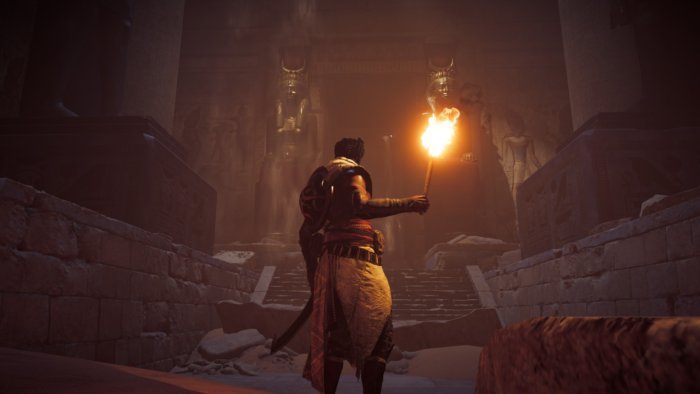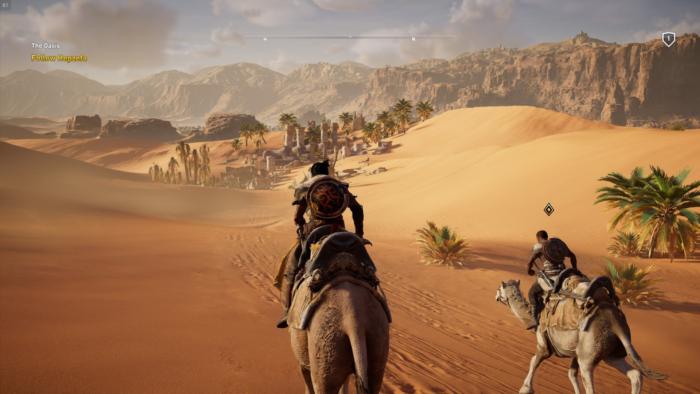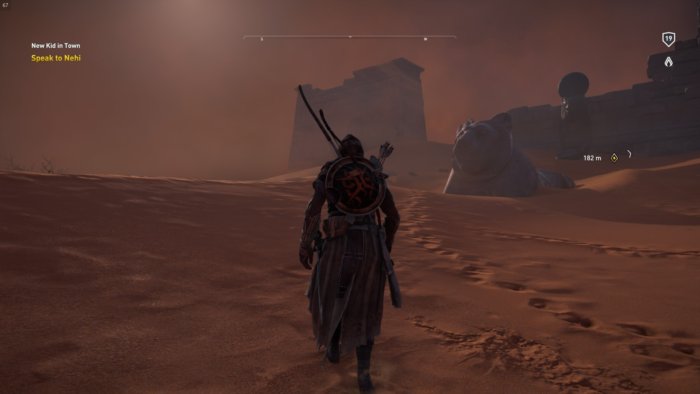
It all makes sense once you know the team who worked on Assassin’s Creed IV: Black Flag worked on Assassin’s Creed: Origins. Which is to say: The reboot has been rebooted.
After Black Flag’s sprawling Caribbean adventure, Ubisoft said it wanted to rediscover the “roots” of I the Assassin’s Creed franchise for its next installment, Unity. And laugh at Unity’s abysmal launch all you want (I certainly did), it accomplished Ubisoft’s goal. Unity brought the series back to the Assassin’s Creed II era, focusing on a single city (Paris) with enough towering cathedrals and palaces to let the reworked parkour mechanics shine. Then Assassin’s Creed: Syndicate…did it again.
But playing Assassin’s Creed: Origins, I was struck by how much it felt like Black Flag—even before I knew it came from the same team. Abandoning the single-city conceit of Unity and Syndicate, the Egypt of Origins feels…well, like the Caribbean, oddly enough, but with shining cerulean seas replaced by figurative oceans of sand.
There’s a lot of empty space in Egypt.
Editor’s note: We’re updating this review-in-progress to a full review now that we’ve beaten the game. Our overall impressions remain the same, but Assassin’s Creed: Origins grew on us the more we played. We’ve left some final thoughts at the bottom of this review.
After a while, crocodile
Specifically, there’s a lot of empty space in Ptolemaic Egypt. Origins is also the first mainline Assassin’s Creed game to rewind the clock, jumping us back from Syndicate’s Victorian era to the days of Caesar, Pompey, and Cleopatra, around 45 B.C.E.

IDG / Hayden Dingman
That puts us in the time of the Egyptian and Roman civil wars, with Caesar all-but-destroying the Roman Republic and Cleopatra trying to take down her brother and rule Egypt. You’re but a small player in these events of course, taking over as Bayek, a “Medjay,” or person tasked with protecting the Pharaoh’s interests. And like most Assassin’s Creeds, Bayek’s personal mission of revenge soon expands and brushes up against the interests of those larger historical figures.
The story is the point where this review is the most “in progress,” I’ll admit. I’m maybe halfway through it and so far not too impressed—Bayek is charming, but he’s no Edward, and his self-serious “Good Person” routine grates almost as much as did Assassin’s Creed III’s Connor. He’s just Very Righteous, and I mean that in the “lawful good” sense, not the psychedelic one. (Update: We’re done now! Final thoughts at the end of this piece. Bayek still grates, but not always.)

IDG / Hayden Dingman
Missions vary in quality drastically. Some blossom, small events spiraling into larger and larger sequences until a mission that began with a single cast-off bit of papyrus has you delving into forgotten tombs. And then, high on the adrenaline from the last mission, you start another and a guy is like “Hey, go play hide and seek with my kids” or “Go grab my scroll from this generic bad-guy lair,” complete with terrible voice acting.
There are some interesting twists on the formula, plus a few good callbacks in the prequel-sequel mold, but so far it’s the setting that’s pulling most of the weight. The Library at Alexandria has yet to be burned down, and the famed Lighthouse of Alexandria (one of the ancient wonders) still stands in the harbor. The Pyramids (another wonder) are starting to show signs of decay, but are still gleaming white for the most part, capped in gold, thousands of years old but still resplendent mausoleums. The Great Sphinx even has its nose intact—and is painted, in the ancient tradition.
[“Source-timesofindia”]
